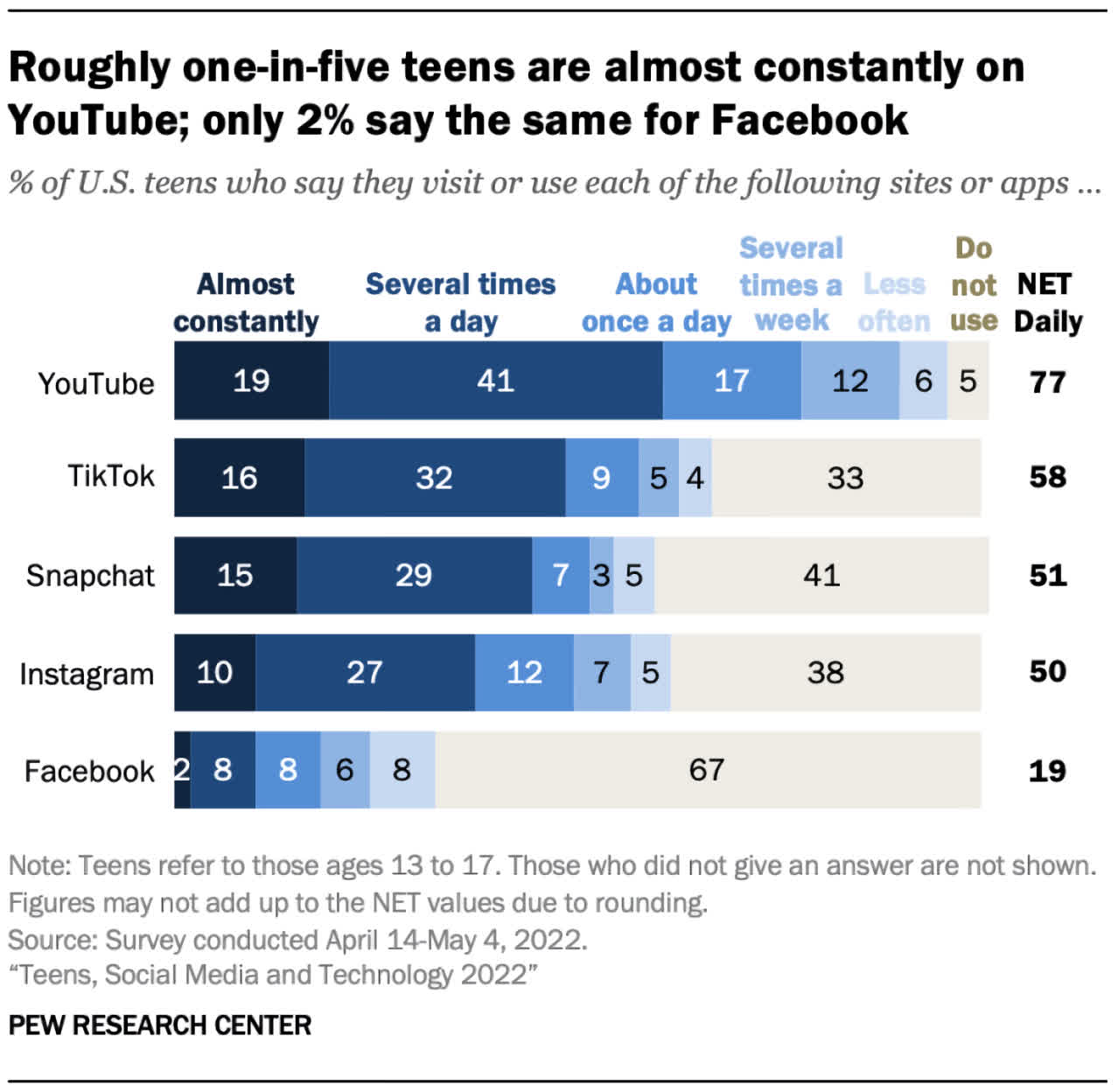In context: It's hard to imagine that a platform with over 3 billion users would be considered past its best or only for 'old people,' yet this is the situation that Facebook finds itself in. But Mark Zuckerberg and its other execs insist this isn't true.
Teens have been moving away from Facebook in favor of other social media sites for years. It was happening as far back as 2014 when Instagram started becoming more popular among that demographic. Insta and Snap proved bigger draws in 2017, and the most recent survey (2022) found that Facebook was the least popular site/app among teens, with YouTube on top, followed by TikTok.

However, as AP points out, Facebook could be preparing a comeback among the younger generation, thanks to the increased scrutiny over TikTok's alleged spying/ties with the Chinese government, leading to calls for the app to be banned. The rise of AI is playing a part, too.
But one of the most difficult things to get rid of is a reputation. AP talked to 24-year-old Devin Walsh, who said she hasn't logged into Facebook for years, but she checks Meta-owned Instagram five or six times each day. Big rival TikTok, meanwhile, holds her attention for an hour each day, its algorithm showing her content "I didn't even know I was interested in."
The idea of Facebook returning to the platform that was once so popular with youths that it helped kill Myspace doesn't resonate with Walsh. "It's the branding, right? When I think of Facebook, I think ugh, like cheugy, older people, like parents posting pictures of their kids, random status updates and also people fighting about political issues."
Statista's data shows that while Facebook is still adding user numbers – there were around 3.74 billion in Q4 2022 – the rate at which people are joining has stagnated in recent times.
Zuckerberg himself said in 2021 that Facebook was refocusing its efforts toward serving younger users, even if that came at the expense of its older, long-time ones. The news came just as the company faced reports that it misled investors over declining teen and young adult user numbers. The company was accused of misrepresentation after spending years showing huge growth but leaving out details of key demographics.
"We used to have a team at Facebook that was focused on younger cohorts, or maybe there was a project or two that was dedicated to coming up with new ideas," said Tom Alison, head of Facebook. "And about two years ago we said no – our entire product line needs to change and evolve and adapt to the needs of the young adults."
Just like TikTok, Facebook hopes a new focus on AI will help attract younger users by showing them content they're interested in, especially the TikTok-like Reels videos. Zuckerberg recently talked about an AI-powered chat for Messenger, too – he seems to have taken the hint about disinterest in the Metaverse.
With more than a third of the world's population using the platform, it's unlikely that Facebook will disappear anytime soon. But Zuckerberg knows that attracting younger people is critical to ensuring it sticks around for another 20 years.
Masthead: Andrea Piacquadio
